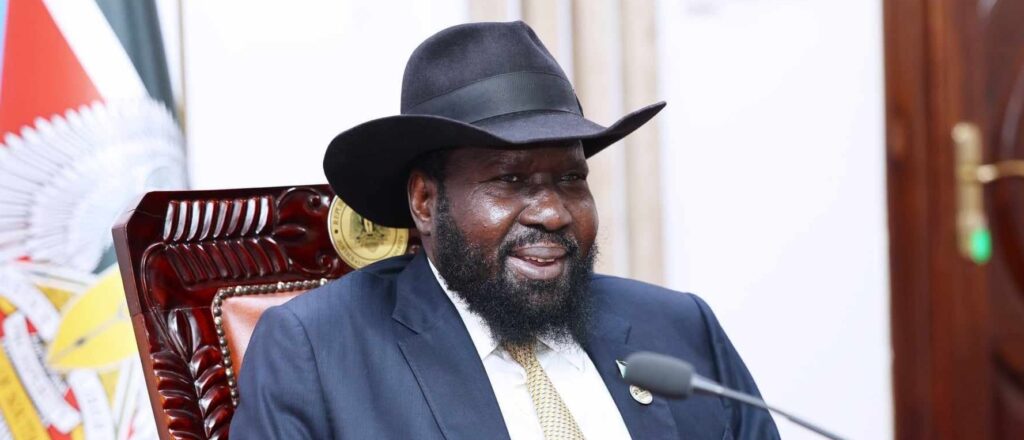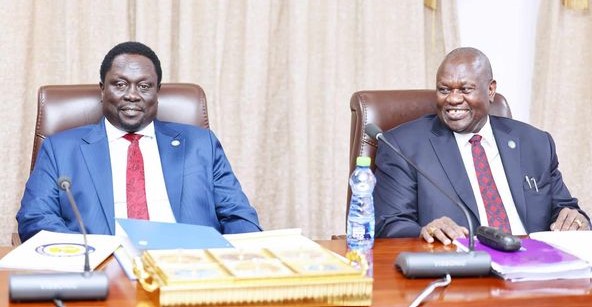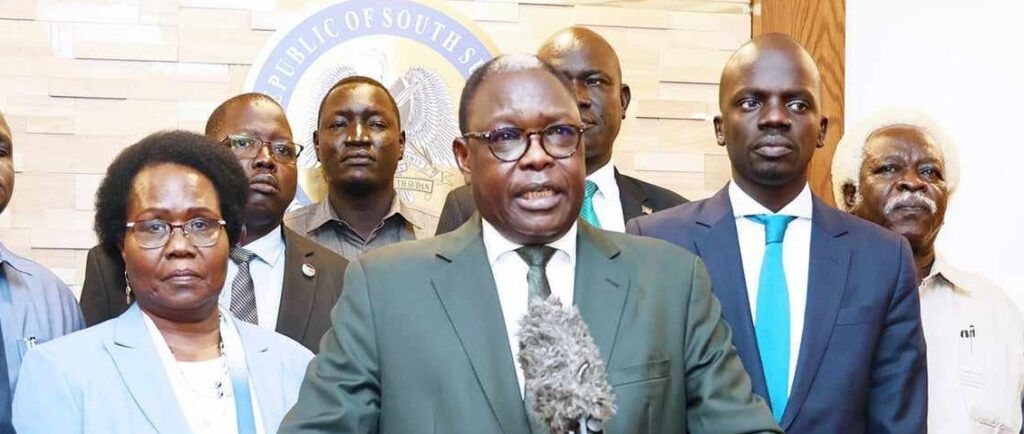South Sudan’s President Salva Kiir on Tuesday directed the National Election Commission, the National Constitution Review Commission and the Political Parties Council to provide a realistic timetable for the parties to agree on the General Election date.
He expressed the sentiments during a meeting of the Presidency that included all parties to the 2018 Peace Agreement to decide on the way forward on the upcoming elections.
The Minister for Cabinet Affairs in the Revitalized Transitional Government of National Unity, Martin Elia Lomuro, told reporters that all the parties agreed that there should be an election, as an obligation and as a factor of stability and institutions of democracy in South Sudan.

“We are all now committed to conduct elections and we to seek technical advice from the institutions,’’ he said.
Lomuro said the decision of the parties and the President demonstrated a commitment to reach a consensus for the sake of peace.
The Presidency received a detailed report from the High-Level Committee on the Implementation of the Peace Agreement and the Status of the Implementation of the Roadmap. The meeting also discussed the views of the parties to the 2018 Peace Agreement on the Tumaini Initiative in Nairobi, Kenya.
The High Level Standing Committee presented a report comprising the details of the implementation of the provisions, the completed provisions, those in progress and the outstanding ones, he said.
The Minister explained that the parties provided views on the way forward as the country moves towards December elections.
The committee, he went on, submitted two views, one of them the ITGoNU’s that elections should be conducted as scheduled, and the other by SPLM-IO that elections should be deferred by 24 months because of the critical provisions that were still outstanding.
The South Sudan Opposition Alliance (SSOA) was of the view for a dialogue among the parties, different from the report of the High Level Standing Committee, and after discussions, the President concluded that the High Level Standing Committee should summon the elections institutions to provide a realistic timetable.

On the government position on the Nairobi peace talks, Minister Lomuro emphasized that the Tumaini initiative must be aligned with the 2018 peace agreement framework, emphasizing that any provisions not in accordance with the existing peace agreement will be removed. He said this step reflects a joint position from all the parties to the revitalized peace agreement.
Recently, Radio Tamazuj reported that the activities of the National Elections Commission (NEC) and the National Constitution Review Commission (NCRC) were being held back by the lack of funds.
While the South Sudanese population is eager to see the scheduled general elections held in December, the current timeline suggests that this may not be feasible.
As per the National Elections law, the National Elections Commission (NEC) is required to conduct voter registration six months in advance and carry out civic and voter education. However, the absence of this crucial step, coupled with the ongoing division among the parties to the Revitalized Transitional Government of National Unity (R-TGONU), poses significant obstacles to the electoral process.
Meaningful dialogue among the parties to the peace agreement has been limited. The peace parties have announced their intention to engage in interparty dialogue to determine the way forward, but little tangible progress has been made, and political leaders have taken divergent stances on critical provisions of the peace deal.
More recently, in May 2024, a parallel political process — dubbed Tumaini, Swahili for hope — was initiated in Kenya to revisit aspects of the 2018 peace agreement, and many people speculate that it may provide space for the parties to negotiate another extension of the transitional period and the unity government.




